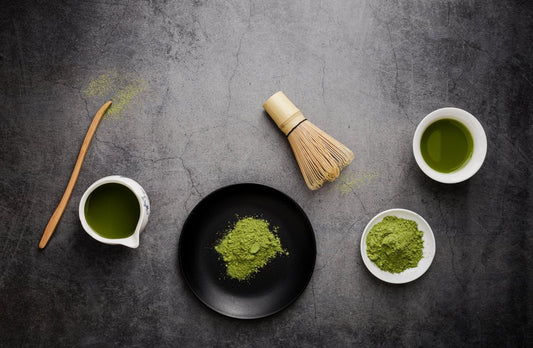Aromatic Elixir: The Culture and Tradition of Jasmine Green Tea
Tea is more than a beverage. It is a cultural experience that transcends time and boundaries. For centuries, tea has been a symbol of hospitality, friendship, and peace. One particular tea that embodies this tradition is jasmine green tea. This aromatic tea, made from green tea leaves scented with jasmine flowers, has a long and rich history. In this blog, we will explore the cultural significance of jasmine green tea and its health benefits. Get ready for a journey into the world of jasmine tea!

Embracing Chinese Traditions: The Origins of Jasmine Green Tea
Jasmine green tea has a special place in Chinese culture. According to legend, jasmine tea was first created during the Song Dynasty in China when a tea maker decided to infuse green tea leaves with jasmine flowers to create a new beverage. The combination proved popular, and the tradition of making jasmine green tea began. Today, jasmine tea is still an essential part of Chinese culture and is often served at special occasions such as weddings, births, and business meetings.
Jasmine’s Soothing Scent: A Calming Influence
The scent of jasmine is believed to have soothing and calming effects on the mind and body. It is also said to help reduce anxiety and promote relaxation, making it a popular choice for meditation and self-care rituals. Adding jasmine green tea to your daily routine may help lower stress levels and improve mental clarity.
Healthful Sips: The Benefits of Jasmine Green Tea
But jasmine green tea is not just a way to relax. It also has numerous health benefits. Green tea is known for its antioxidant properties, and adding jasmine flowers to the mix can enhance those benefits. The combination of green tea and jasmine flowers may help boost metabolism, reduce inflammation, and lower the risk of heart disease, cancer, and other chronic conditions.
Bridging Cultures: Jasmine Green Tea across Borders
Jasmine green tea is not only a symbol of Chinese culture but also represents other cultures such as Japanese, Korean, and Taiwanese. Each country has their own unique way of preparing and serving the tea. In Japan, the tea is often served at ceremonies and is known as a symbol of purity and simplicity. In Korea, the tea is known as "jasmine cha" and is often served to guests as a gesture of hospitality. In Taiwan, the tea is known as "fragrant tea" and is often paired with traditional dim sum dishes.
The Art of Brewing: Crafting the Perfect Cup
Brewing jasmine green tea can be a fun and creative process. There are many variations to the basic recipe. One popular way is to add a few drops of honey to the tea to enhance the flavour. Another way is to add sliced fruit such as lemons or oranges to the tea to give it a fruity twist. To maximize the taste and aroma of jasmine green tea, it is important to use high-quality tea leaves and fresh jasmine flowers.
Jasmine Green Tea: A Rich Blend of Culture and Health
Jasmine green tea is not just a fragrant and delicious beverage, but it also has a rich cultural significance and health benefits. Whether you drink it to relax, for its antioxidant properties, or simply to enjoy the taste, jasmine green tea is a beverage that is sure to delight your senses. So next time you are in the mood for a cup of tea, why not try jasmine green tea and experience its cultural and health benefits for yourself?



